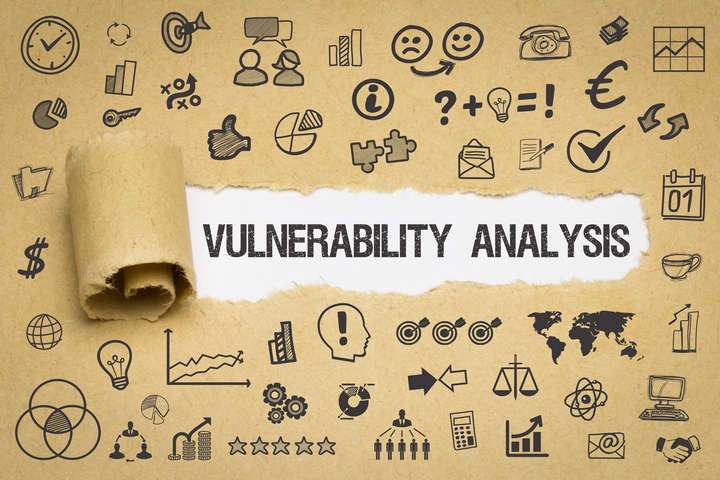Technology seems to move at an extremely rapid pace with no sign of slowing down. With that said, the threats that we face also seem to work as hard as these advancements.

As a result, cybersecurity has become a growing concern for everyone, especially those operating a business today. Thus, it is only essential that you learn as much as you can about these threats so that you can identify weak points in your systems.
One way to do this is to invest in vulnerability testing.
Understanding Vulnerability Testing
Vulnerability testing, sometimes called vulnerability assessment, has become a vital process to any organization’s strength and survival.
This cybersecurity process’s main goal is to identify holes and determine the gravity of weaknesses in your IT infrastructure. These kinds of evaluations usually involve various testing tools such as automated software vulnerability testing and web security scanners.
So, why do you need a vulnerability testing service? Here’s a list of 8 benefits of vulnerability software testing you need to know.
1. Identify Weak Points in Your Systems
Regular scanning of your network systems can help identify any vulnerabilities or critical holes in your system that malicious individuals can exploit. These vulnerabilities may include weak passwords, expired certificates, unsecure registry entries, poor encryption protocols, and more. Advanced vulnerability scanners can also detect backdoors, SQL injection, malicious code, plug-ins, and malware.
Not only that, but vulnerability testing also allows you to test against the latest hacking strategies. A reliable vulnerability scanner should help your IT team to patch up such vulnerabilities and improving your system’s security.
2. Updating Software
With vulnerability software testing, you can verify and ensure that your software and networks are up to date.
Vendors regularly release updates, patches, and firmware upgrades specifically to patch up identified security vulnerabilities in their products. And a regular scan of your external and internal network system can ensure that they are current for the latest update changes.
3. Checking for Proper Configurations
Vulnerability testing can also help check and determine any improperly configured software and systems that may leave your network at the mercy of hackers. And while your IT team can implement new systems securely, sometimes it greatly helps to have a second line of defense that looks at your system’s integrity.
A vulnerability tester can help support your IT team and guard against the simplest human error when deploying and configuring new software and hardware.
4. Fast and Efficient Vulnerability Fixes
Vulnerability testing does not only mean simply scan for weak points in your system. Reliable vulnerability testing solutions can also provide quick and detailed fixes of detected holes in your system.

This can reduce the pressure on security engineers and the time used to find possible solutions to patch such vulnerabilities.
5. Provide a Comprehensive Report
Another reason why you might need reliable vulnerability testing software is to get comprehensive and easy-to-understand reports on your system’s vulnerability.
Reporting is a crucial element of any vulnerability scanner. Centralized reporting and monitoring of vulnerabilities are valuable for your security engineers and developers. They can use it to fix your security weaknesses and vulnerabilities.
Just imagine manually compiling reports showing how vulnerability status can change from one scan to the next across various network assets. You will have a confusing spreadsheet of records and be forced to rely on data that may be out of date.
With a full vulnerability testing solution, you can get clear and actionable dashboards and trend charts. Security personnel can generate updated reports to illustrate results and making a compelling case for new security strategies. This should eliminate the guesswork and allowing them to make fully informed decisions based on comprehensive data.
In addition, this vulnerability report should also help in establishing a business risk/benefit curve to optimize your business’ security investments.
6. Policy Compliance
Businesses are required to maintain strict data and information security regulations across assets. And by regularly testing for vulnerabilities and weak points in your system, you should be able to validate if your security policies are still in compliance with industry regulations and national data policies.
Fortunately, the most reliable vulnerability scanners of today have the ability to identify compliance rules based on the standards and regulations that your organization may face, including GLBA, HIPAA, SOX, FIECC, and PCI DSS. These security solutions should also allow you to create templates the match up your policies and any regulations.
7. Establishing Trust
Customers are now more privacy-aware than ever. They demand a high degree of vigilance and risk awareness from businesses in terms of cybersecurity.
Good network security through frequent vulnerability testing can provide customers the assurance that they can trust and rely on your business to protect their data. Whether you serve other businesses or the consuming public, a strong cybersecurity program backed with regular vulnerability scanning can help build trust in your brand and make you stand out from your competitors.
8. Good ROI
If you think investing in a reliable vulnerability testing service is just another unnecessary expense, think again.
The damages that follow a cyber-related issue can be detrimental and expensive for any business. Some of the potential repercussions that a business can face after a cyber-attack include:
- Reputation damage
- Loss of revenue
- Loss of clients
- Lawsuits
- Operational disruptions
- Compromised client data
- Theft of personally identifiable information
As you can see, the benefits of investing in a good security preventive measure, like a vulnerability scanner, outweigh the cost of a breach or leak. By investing in good vulnerability scanning software, you’re investing in the future of your business.
Conclusion
Your business’ IT requirements are constantly evolving. The security and stability of your system are a critical part of your organization’s life. As your systems and applications change to meet your business needs, so make your network infrastructure threats. Thus, there’s no denying just how crucial regular vulnerability testing is to maintain your business’s overall security.

